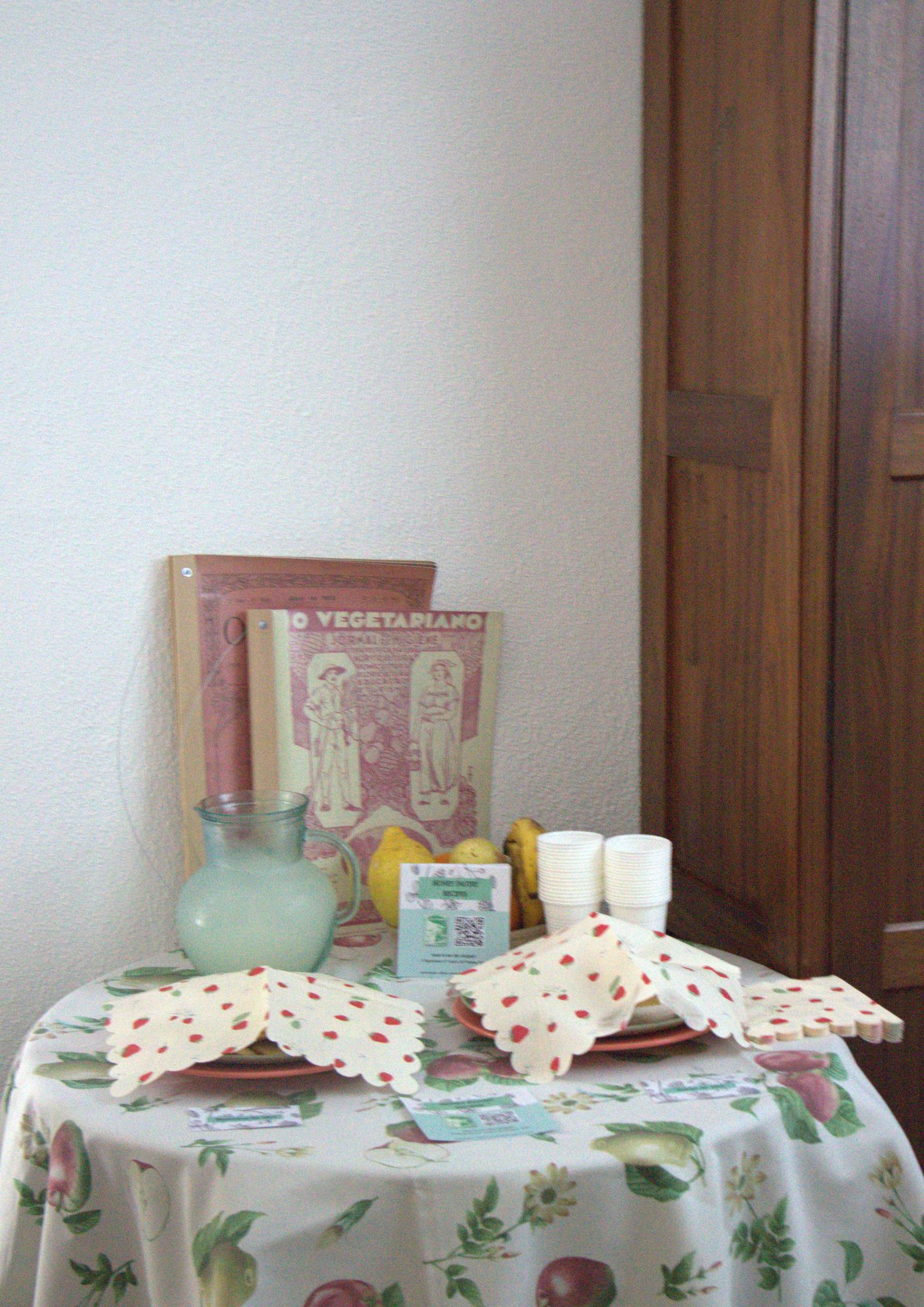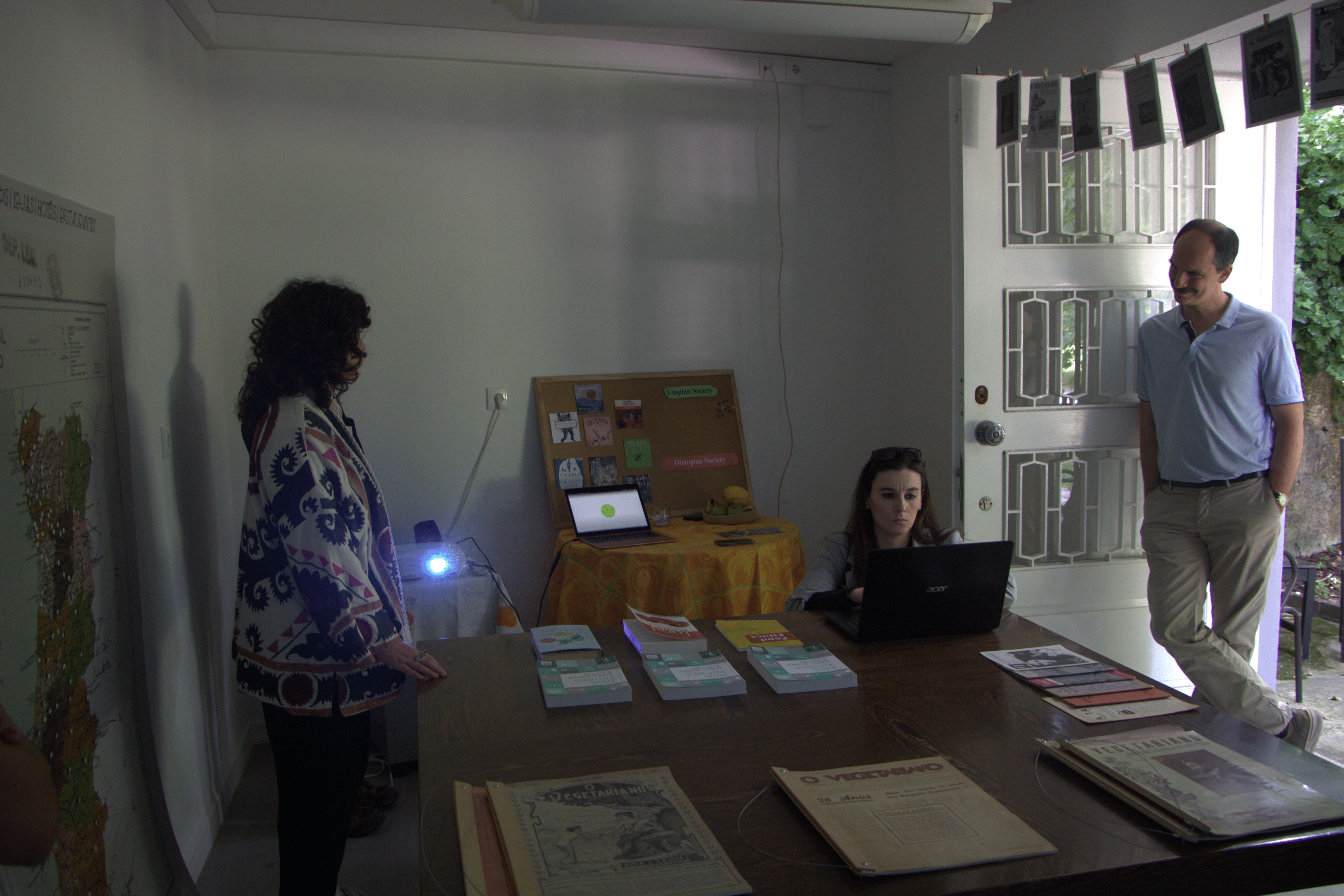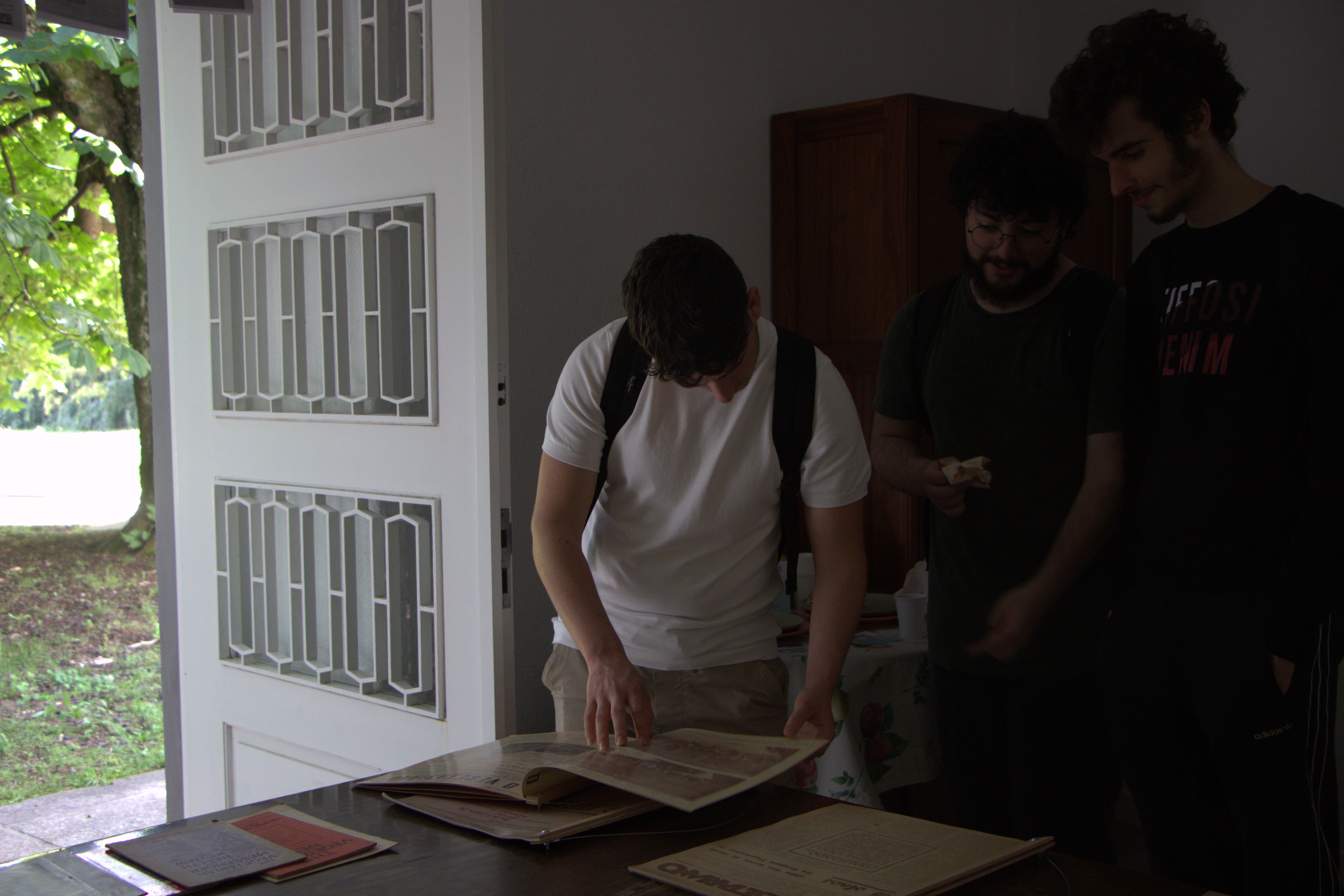For this year’s Digital Lab Open Day, I crafted an immersive experience centered around O Vegetariano, Mensário Naturalista, a Portuguese vegetarian monthly periodical that was published continuously from 1909 to 1935. This periodical, with over 3,500 subscribers, provided a glimpse into the, mostly unknown, vegetarian, naturist, and frugivore movement that thrived in Portugal over a century ago.
As part of the Foodways Project, the exhibition shared space with the Alimentopia activity, for which my colleague, Lile led her activities —to learn more about the Alimentopia activity, click here to read Lile’s blog post.
Together, we invited visitors into the world of utopian food studies.
The atmosphere was set the moment visitors entered the room, where they found themed tablecloths of pumpkins, apples, and pears, as well as fruit baskets spread around the room, out of which they could take out whatever fruits they wanted.

On the feature wall, there were on-loop projections of Alimentopia’s YouTube channels’s videos on O Vegetariano, about the Founders of the Portuguese Vegetarian Society, Vegetarian Women, Vegetarianism as Utopia, and the Vegetarian Message, among others. Click here to check out these informative videos, and learn more from the leading researchers of the project.
In the center of the room, a carefully curated selection of both copies of the O Vegetariano and other historical vegetarian publications such as The Vegetarian News, Health from Herbs, and The British Vegetarian, were set, allowing our visitors to peruse through these hidden gems, and read the articles, recipes, and testimonies that once inspired the naturist and vegetarian movement in the early 20th century.

But this wasn’t just an exhibit of the printed history of the O Vegetariano—I wanted it to be as immersive a sensory experience as possible. Visitors were treated to honey biscuits baked using authentic recipes from O Vegetariano’s pages For those who might have wanted to recreate these honey delights at home, small cards with QR codes were handed out, linking to the original recipes, creating a bridge to the past through the digital. If you’re interested in trying out the recipes yourself, click here to download the cards.

One of the standout features of the room was the large map of Portugal, originally part of a previous exhibition “Pêros, Avelãs e Figos: Os Vegetarianos Utópicos de Há 100 anos”. This map, dotted with white pins, revealed the existence of a surprisingly widespread vegetarian community between hotels, restaurants, doctors, and subscribers to O Vegetariano.
During the exhibition, as people came in and out, not only did they flip through the pages of O Vegetariano, but they were also curious enough to ask questions about the origins of the Portuguese Vegetarian movement and society. Many were surprised to learn of both its existence let alone how extensive the network actually was, raising questions on today’s dietary trends and the role of vegetarianism in shaping social and cultural change in Portugal.

As the Open Day came to a close, I was glad to know that O Vegetariano and its rich history had sparked such curiosity and interest among visitors. By combining food studies and the digital, the exhibition emphasized how food can shape worldviews—both in the past and present and allowed visitors to engage with the 100-year-old periodical through digital means.
Extensive research work on O Vegetariano has resulted in a searchable database, where all entries are meticulously indexed, which can be found in the CETAPS Repository. Click here to visit this digital archive to further explore O Vegetariano!
